M.K.B. Graham's Blog, page 2
June 3, 2023
The pause that refreshes …
I’ve thought a lot about the creative process and I have often likened it to an artesian well. For those non-geologists, an artesian well is a natural well that bubbles up out of the ground under its own pressure. It is usually free flowing and often overflowing. Sounds like the creative process, doesn’t it? Unlike a standard well, it doesn’t require a pump. Let’s call that an external push—or dare I say “prompt.” Any writer will recognize that kind of personal well of thoughts and ideas that push and prod us to get things on paper.
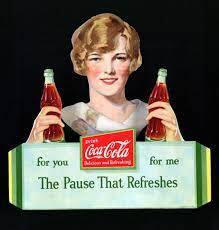
An artesian well, however, like any well can go dry from overuse. Tap it too much and you end up with a weak stream or the dreaded writers block.
Heading into summer, I’m drawn to this analogy. Wintertime is usually productive for me. It’s cold outside. There are no flower beds to weed, no golf courses to tackle, no family picnics, no hikes to take on. Sitting in my office working while the cold winds blow, the snow piles up and the outside world becomes less hospitable, I’m eager to write and ideas flow freely.
When warm weather comes, though, other activities begin to encroach on my writing time. My calendar fills up, and I’m pulled away from my ordinary productivity.
I’ve tried—really tried—to press on through the summer and continue my productive winter pace. I found, however, that my creative spring begins to run dry around mid-April. So, instead of fighting to eke out the last drops of creativity I have learned to lean into the pause.
In 1929, the Coca Cola company began using a tag line that said it all: “The pause that refreshes.” I like that because it describes the way I’ve come to think about summer. I can stray from my desk and enjoy some of life’s other pleasures.
The trick is to consider the pause to be an essential part of the creative process. That’s when I go back to my artesian well analogy. When my well begins to run dry, I fill my life and mind with other things that fuel the creative process.
How many times have you faced a problem with a plot or stalled on a character’s dilemma—and after a good night’s sleep, the solution comes to you almost instantly. C.S. Lewis called sleep “God’s celestial nurse.” The same thing applies to writers and their creative process. Sometimes we simply need “a pause that refreshes.”
A pause to let our creative wells refill.
May 2, 2023
The modern writers’ shifting sands …
There was a time when writing a novel was a singular task. Writers like Charles Dickens or Mark Twain took up their writing instruments and wrote on paper. Dickens always used blue ink and couldn’t start a novel until he had decided on the title. [That’s another fun post coming.]
They would then turn their work over to a printer who would take over. The authors might edit and refine the manuscript, make any corrections, but their work was mostly done. Publishers generally handled everything else.

That world is gone, gone, gone.
Today’s writers face a daunting task—in addition to the daunting task of writing a book. Except for the most elite writers [think Gresham and King] writers have to write, then promote their own books. Even those who snag an agent and publisher are expected to manage much or all of the marketing.
That’s just a fact. What complicates it for today’s writers, especially self-published authors, is the shifting sands of media.
If you’ve ever tried running in the sand—not the wet kind near the water—but the dry stuff, you have an idea of how a writer can feel.
Take blogging. I started using WordPress in about 2010. It was a challenge to learn a new platform, but I did it a little bit at a time. Soon I was blogging (for an employer) three times a week.
Fast forward to 2017. By that time, I had left that job and was on my own writing novels. I was fulfilling a lifetime dream of being a full-time novelist. And I was fairly savvy as far as social media was concerned, but I quickly learned that nothing ever stays the same.
Modern communication, much of which is electronic/online, is a minefield of quirks and changes and upgrades. Just think how often you are asked to download and upgrade on your laptop or phone. I understand fully that all these little tweaks are improvements. I get that. Still, it leaves the writer in today’s markets the additional task of not only writing but of keeping up with the contending shifting sands of media.
It feels as though every time I start to write a new blog or upload a new book or update an author page, something has changed. And I am instantly shoved back into learning mode to figure out how to use the newest tool or trick. It is enormously frustrating as platforms are changing and morphing at light speed. Granted, the options are better than filling the trunk of your car and hawking books at county fairs, but still….
So what’s a writer to do? As much as I’d love to go back to the olden days when all I had to do was write, that ain’t happening. Like it or not, I have to keep up or get left behind. Still with every step I take, the sand is hot and constantly shifting.
April 8, 2023
Finding your voice as a writer …
Any accomplished singer will tell you that a voice over time matures, blossoms, and eventually settles into a distinct and recognizable vocal signature unique to an individual. In the art world, this principle is even easier to understand when one examines the early works of a famous artist and compares that body of work to his or her later efforts. Similarly, an avid student of classical music can recognize the style of specific musicians. For instance, Aaron Copland (one of my personal favorites) had a style that I can almost always identify. The same with George Gershwin or Gustav Holtz or Sergei Rachmaninoff.
 “Writing Writer” by Negative Space/ CC0 1.0
“Writing Writer” by Negative Space/ CC0 1.0Developing a writing style—finding your voice as a writer—is no different. It takes time, experience, knowledge—and lots and lots of trial and error and practice and experimentation to discover and settle into the distinctive voice that is yours alone. Open books by Hemingway and Steinbeck and right away you’ll see the vast differences in their styles.
So, how do you find your own voice? As one who has been at this writing game a long time, I offer three suggestions:
First, read, read. Read voluminously and read broadly. Never limit yourself to one author or one genre or one time period. Read different styles, different authors, and different approaches, including the masters, because in doing so, you will absorb parts of their individual styles. Think of it as absorbing different musical phrases, learning new brush strokes, or developing new techniques.
For a time, you may begin to write like an author you admire. I know I did. For a time, I mimicked the style of writer Catherine Marshall. But the more I read—especially the wider I read—the more styles and tricks and shades and colors of writing I absorbed. Readers do this almost unconsciously, although I will confess to underlining (always in pencil) phrases in books that I find especially interesting or effective.
If you don’t read broadly—and many writers limit themselves to a single genre—you will not find and develop to the fullest your unique style.
Second, experiment. From your reading, try your hand at sounding like Hemingway or Steinbeck. It’s good practice, and like copying the golf swing of Tiger Woods or the lovely diction of Sir Anthony Hopkins, parts of those excellent characteristics will gradually merge with your own. Think of it this way: If I were to try and speak in strict “Anthony Hopkins,” my natural Southern accent would still be in there somewhere…..and if my 5″3″ frame were to emulate Tiger Woods, well, I’m sure you get the idea.
Some might say this is borrowing too much, but throughout history the masters of any field of study or art have built on work of the most accomplished. It’s creating a unique voice all your own by learning from the best of the best.
And third, be courageous. Writers—all of them—have split personalities. It is essential for writers to be insecure enough to listen and learn, yet bold enough to actually write. [That last sentence is another post in itself!] Finding your voice requires that you write. Do not let fear, especially fear of failure, derail you.
I once corresponded with author Steven Galloway, author of The Cellist of Sarajevo. He offered a piece of advice I’ve never forgotten. “Writing is hard,” he wrote, “and a lot of people are full of whacky advice about it. All I can really tell you is to write in a way that makes you feel nervous, like it is either fantastic or terrible. Take risks, however you define that.”
If you do these three things and work at your craft, you will find you voice. The secret is to go after it—and to enjoy the journey.
March 17, 2023
As easy as spilling paint …
Writing is a craft. Editing is a craft. And the two are inextricably entwined. One needs the other. Without writers, editors would be unnecessary. Without editors, writers would be, well, lesser writers.
The trick comes in the balance and knowing how editors help—and when they can hurt.
Years ago, when I was a young and inexperienced editorial assistant, I wrote an article on how people blamed computers whenever a mistake occured. The thrust of the article was that people not computers were the root of “computer mistakes.” As one droll tech person once called them: “user problems.”
Granted, in today’s world of bots and AI, there can be genuine computer screw-ups, but back when I was writing my story, it was people not the computers who goofed up.
In my story, I described the computer as “a gaggle of wires.” My boss—actually, my boss’s boss—objected to the description. He said, “gaggle could only refer to geese.” I argued with him but lost. “Gaggle” was edited out.
However, I was right, and he was wrong. He didn’t understand the most fundamental rule of editing: DON’T MESS WITH THE WRITER’S NATURAL STYLE.
An editor’s job is to make a writer’s work shine—to help make it the best it can be. It is not an editor’s job to shape a story or a novel in the editor’s own image. But that’s exactly what many editors attempt to do. Editing, they think, gives them license to reshape a writer’s words how they, the editor, would write them.
But that’s wrong. Flat out, wrong.
The best editors know this. They understand that every writer—read that again, every writer—has a distinct style and approach to wordsmithing. For many (particularly beginners) that style is only emerging. Good editors will improve the writing without squelching a writer’s natural style.
[image error]Pexels.com" data-medium-file="https://cairnaerie.files.wordpress.co..." data-large-file="https://cairnaerie.files.wordpress.co..." data-id="6597" src="https://cairnaerie.files.wordpress.co..." alt="" class="wp-image-6597" srcset="https://cairnaerie.files.wordpress.co... 1024w, https://cairnaerie.files.wordpress.co... 150w, https://cairnaerie.files.wordpress.co... 300w, https://cairnaerie.files.wordpress.co... 768w, https://cairnaerie.files.wordpress.co... 1880w" sizes="(max-width: 1024px) 100vw, 1024px" />I once worked with an expensive NYC editor. She read my manuscript, gave me some general suggestions, but her overwhelming advice was that I should “write a Civil War novel.”
I tried. I rewrote my entire novel based on her advice and resubmitted it.
Suffice it to say, the rewritten novel didn’t fly because that was neither my intent nor my style. I eventually returned to square one and finished the novel as I had set out to do in the first place by using my own counsel, the advice of several beta readers, and one outstanding editor who helped me immensely but who did not change my basic style and intent.
I finished the novel and was happy with it. Based on my reviews, readers were pleased as well.
Tampering with style is an easy pitfall for editors. I must confess that when I’ve worked as an editor, I’ve made this egregious mistake myself many time. It’s as easy to do as spilling paint. I have edited manuscripts for others as I would have written their novel—and that was the wrong approach. I’ve learned this lesson from both angles—as a writer and as an editor. (Experience is a great teacher.)
Writers need editors, but the trick is to find one who will help improve your writing while allowing your natural style, voice, and intent to shine through.This kind of editing is an art in itself—and an essential part of the writer-editor relationship.
Next time, I’ll tackle finding one’s voice as a writer.
March 8, 2023
Every writer’s necessary partners …
Writing a book—as so many authors from Hemingway to Twain have declared—is a solitary profession. It requires long hours of solitude and quiet contemplation. Sometimes it’s lonely. But for a book to really shine—especially in today’s competitive marketplace—it eventually requires the aid of others.
Editors and graphic designers are at the top of that list. Having published two books, I am acutely aware how important these two writer partners are.
First, editors.
For many writers there is a tension here, a kind of natural hesitancy to listen to editors. I’ve observed this in many “young” writers. (I use “young” here as inexperienced.) Much of their caution comes from the notion that writing must be inspired. Thus if it is so inspired, then it must be perfect—or at least perfectly rendered in their opinion. While inspiration has a role, of course, writing might more be described as yeoman’s work. It is hard and requires considerable time and attention—but here’s the clincher: good writing lives or dies on the ability of a writer to go beyond inspiration and into the realm of plain old sweat equity.
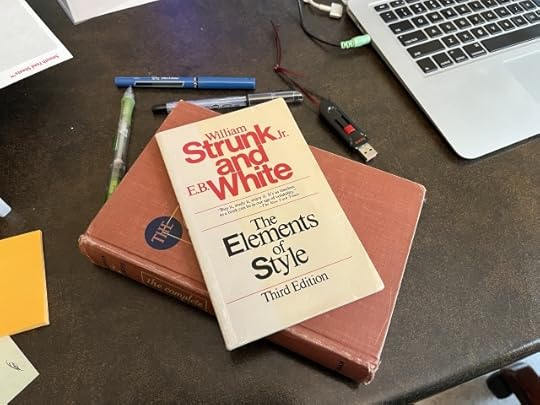
Therefore, editors—and I’d include beta readers in this umbrella—can make or break a book. They can point out flaws that writers, who often have tunnel vision, cannot see. Good editors will also tell you the truth. If something in a book isn’t working, they’ll tell you—and your book will be better if you listen to them.
Similarly, graphic designers can take an ordinary book and make it look like a masterpiece by using the right fonts, the right flourishes, just the right formatting. And when it comes to covers, the work of these designers becomes your front porch—what readers see first and what draws them to look beyond the cover.
The mature writer knows this. He or she also knows that perfection is impossible in writing. Writers still strive for perfection, but never has been a book written that has received universal praise. Never. The seasoned writer knows that editors are critical to advancing a work toward that elusive goal of perfection.
So, it is at this point that so many writers are derailed. They become discouraged by editorial criticism, even when it is spot on and offered in the most generous of terms. They have—and I have seen this so often—become so identified with their every word, sentence, paragraph that to change a single word is like cutting off a finger or putting out an eye. They either quit altogether or—worse yet—they plow on with a far less than excellent book.
Yes, editorial review can sting. So can mercurochrome.
But to arrive at the point where a writer can step back and look critically at his or her own work is a significant milestone—an essential milestone. It signals the point where writing changes from frenzied inspiration to serious craftsmanship.
Finding a trustworthy and competent editor, however, is perhaps one of the hardest tasks for aspiring writers. There are editors, and then there are editors.
Finding a good one is tough, mostly because any of the friends and/or family one might logically look to for editorial help are not competent editors or they are unwilling to tell you the truth.
Years ago, I attended a writing group, a meeting of fresh, green aspiring writers. They gathered around a table and read their work. Each reading was met with praise. Fortunately, I was a guest and could politely decline offering my opinion. But had I, my criticisms would have been scathing. These writers—earnest, ‘inspired,’ and eager—were at the very starting gate of a race that I knew was a thousand furlongs. In other words, they had a long way to go, a lot to learn—and the affirmation they received was, quite frankly, dishonest.
Each one lapped up the praise—but they didn’t learn a thing.
In one of my favorite writing blogs, “The Editor’s Blog,” by fiction editor Beth Hill, you will find an entry titled, “When the Emperor is Naked, Tell Him.” Every aspiring writer should read it….and take it in.
Hill discusses the failure of critics to be honest with writers and how it hinders their progress. Sometimes criticism hurts, but like the surgical removal of a tumor, the pain leads to healthier writing.
To accept this surgical kind of editing, writers must remove their personal feelings and examine their work with an honest eye. That is not easy, but that is essential.
The ability to step back and look critically at one’s own work is summed up succinctly in the oft-given advice to writers: “Kill your darlings.” In its simplest form, it means everything you’ve written should be subject to tweaking or adjustment or simply deletion. It takes courage. Yes, it does. But the end product will be far better.
Next week I’ll discuss the editor’s side of this equation and how editors can make or break a writer’s spirit.
“Revision: How to Kill Your Darlings and Survive the Process,” by Ruthanne Reid https://thewritepractice.com/kill-your-darlings/
“When the Emperor is Naked, Tell Him,” by Beth Hill
December 24, 2022
A chill in the air ….
It’s only hours before Christmas celebrations commence. Outside the wind is howling and the air is frigid, but the sun is shining. It feels like Christmas. An occasional burst of snow blows by, and all the trees brittled by ice are bending and swaying. It is the kind of day that inspires writers.

Yesterday, as heavy rain fell and cold air descended, glazing the trees and everything beyond my windows with ice, I spent part of my afternoon reading the first of Edgar Johnson’s two volume biography of Charles Dickens, His Tragedy and Triumph. Johnson’s book is a marvelous, endlessly readable volume that makes me want to march through all of Dickens’s works.
Today’s deepening winter cold reminds me of those dark, dreary days on London streets where young Dickens trudged to the blacking house to fill bottles with boot black and paste on labels, a dirty and laborious job that for his creative soul was unquestionably mind-numbing. Yet it is clear that he used that experience and thousands of others in his life to create the memorable characters who are so alive in his books. In fact, I learned that one of his childhood friends was named Fagin, a name that should sound familiar.
The cold winter day also reminds me of the chill of Poe’s raven as it sat upon his bust of Pallas. Cold and wind and bluster and chill all become platforms for mood—and even story, as in the case of Steinbeck’s The Grapes of Wrath, whose first chapter is about the weather.
Needless to say, cold weather sets the tone, grounds a good story—and eventually causes a reader to tuck a blanket tighter around her shoulders or shudder at the sound of a sudden gust. It is because we live in the weather. It surrounds us, makes us shiver or sweat. It baths us in glorious sunshine or it freezes the blood in our veins. Weather is universal.
For me, a book without this kind of setting, without the part of life that is universal is missing something. And it is days just like this, bitterly cold and windy, that penetrate (and inspire) my writer’s mind and soul.
November 2, 2022
Books every serious writer should read …. and study
I just finished reading Daniel James Brown’s bestselling book The Boys in the Boat. I know I’ve read a really, really good book when there’s a kind of sadness when I get to the final page, and I close the book in awe of the writer’s ability to tell the story. I’ve long said that a book has only two parts—story and writing. When the two come together and are handled by a talented writer, it produces a kind of magic. That was my experience reading Brown’s book.
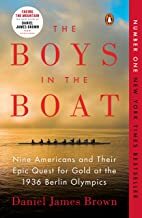
As compelling as Brown’s storytelling, though, his writing was simply beautiful, not in a flowery kind of way, but in the way one feels in the presence of a master. Clearly, he is a master writer. And even though I’ve written professionally for decades, I learned a lot from Mr. Brown and was reminded once again that writing is truly an art form that can be as inspiring as a Michelangelo statue or a Monet painting.
All this made me think about the writing process and how fundamental reading is in learning the art of the pen. In a recent conversation, someone commented that they’d loaned a book to a friend who had returned it saying, “It’s written like someone looked up ‘how to write a novel’ and then followed the directions.” Fine writing just doesn’t work that way. Writing is best learned by absorbing, internalizing, imitating, and developing your own style—and that’s why reading is so essential to good writing.
That quote captures what make the difference between ordinary and extraordinary writers. It is, I suppose, not unlike the difference between an apprentice and a master. One produces; one creates. Masters go beyond the process—beyond the ‘rules’—and lift their craft to a new level.
And that started me thinking about the books I’ve read that taught me a lot about writing—and I thought it would be fun to make a list of books that every aspiring (and accomplished) writer should read. Not books about writing, mind you, (though I have some favorites there, too), but whole books, fiction and nonfiction, that take you to a different world and hold you there for hundreds of pages.
So, here’s my list—in alphabetical order—of the books that I think every serious writer should read and absorb.
A Gentleman from Moscow, Amor Towles (For character development)
All Over But the Shoutin’, Rick Bragg (For reading God-given writing talent)
All the Light We Cannot See, Anthony Doer (For overall structure and plot)
Anything by Edgar Allen Poe (For tone and mood)
Cold Sassy Tree, Olive Ann Burns (For how to open a novel)
Cutting for Stone, Abraham Verghese (For keeping the reader engaged)
Out of the Dust, Karen Hesse (For rhythm, imagery, and economy of words)
Sarah’s Key, Tatiana Rosnay (For how to set questions in your readers’ minds)
Seabiscuit, Laura Hillenbrand (For expert use of language and research)
The Boys in the Boat, Daniel James Brown (For the use of metaphors and similes, and research)
The Dubliners, James Joyce (For imagery and how to break the rules the right way)
The Education of Little Tree, Forrest Carter (For trusting your audience)
The Great Gatsby, F. Scott Fitzgerald (For beautiful language and imagery)
The Secret Garden, Frances Hodgson Burnett (For how to make a character change)
Water for Elephants, Sara Gruen (For how to end a book; I didn’t love this book, but the ending made it worth the read.)
There are, perhaps, a dozen more books I could add, but these rise to the top. And although I’ve mentioned specific characteristics for each book, all these authors displayed almost all these characteristics….excellence in plot, structure, economy of words, engagement, tone, character development, research and authenticity, imagery, good beginnings and satisfying endings, well-crafted sentences, faith in readers, compelling stories….all essentials of good writing that writers can learn by reading the works of these master writers.
So, those are my picks. What masterful books have you read that taught you about writing?
September 5, 2022
The verdict is in …
I love using beta readers as I’m working on a book. They are so helpful, especially to counteract the very real tunnel vision that writers get when they’ve looked at a manuscript—stared at it incessantly—for months and months and months.
This time around, I had several beta readers who were quite helpful. But the chief beta, the final word, the approval I hang on is the one by my husband. And his assessment of my newest book, Dunkard’s Hollow, has been slow coming.
If you assume the slowness was so that he wouldn’t upset his wife, you’d be wrong. The delay had much more to do with the fact that the man is a rabid—in every sense of the word—rabid reader.
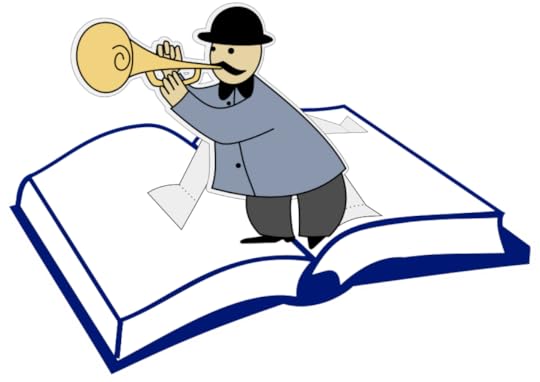
Years ago, he got hooked on books when he read—and loved—Herman Melville’s Moby Dick. It was the beginning of an obsession of books that any English teacher would applaud. He expanded his palette by delving into the histories written by the late David McCullough, including Truman, a tome he plowed through. He reads just about anything that looks interesting.
To say he reads a lot these days is a gross understatement. Of the multiple series written by Bernard Cornwell, one of his favorite authors, he’s read more that 40 of his books.
All this is to say is that the man knows books.
So, when he finished reading my newest book, Dunkard’s Hollow, the verdict was in. Reading it took him less than three days, and I was more than eager to hear his assessment.
“It’s your best yet, Babe.”
That made my heart sing and, as it did when I first published Cairnaerie, it inspires me with the courage to move toward publishing.
As I usually do, I’ll probably make a half-hearted effort to snag an agent, hoping to snag a publisher, and snag a big publishing contract. It’s an occupational habit—every authors’ eternal hope to hit the big time. (I must admit, however, that it is far less a goal for me than it had been years ago.) I just love writing.
So as I say—half-hearted. More than likely, I’ll soon be calling my wonderful graphic designer to create another cover and format another book for me to self-publish. And that will be just fine.
In the meantime, I’ll bask in the knowledge that my chief critic, my most beloved beta, likes my book.
July 26, 2022
That ONE book …
Anyone who has read about the writing life of C.S. Lewis has, no doubt, come across his references to George MacDonald’s Phantastes. The book inspired Lewis like none other. He writes about how MacDonald’s book opened his mind to the world of imagination, which he eventually came to understand was God-given and incredibly freeing.
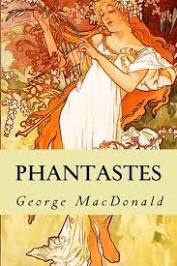
Recently—out of curiosity—I ordered and read Phantastes. I was struck at how clearly lines can be drawn between MacDonald’s book and Lewis’s wonderful Narnia series.
It dawned on me that, perhaps, all writers have that one book that first sparks their imagination, that dumps them into the world of writing and imagination—that one book that sets them on a lifelong quest to find just right words in just the right order, in just the right setting, in just the right story.
For me, that one book was—undoubtedly—Frances Hodgson Burnett’s The Secret Garden. It is not an overstatement to say the book completely captured me…
The unfortunate Mary Lennox, orphaned when a plague in India kills her parents. The tossed aside Mary Lennox, whose beautiful mother didn’t like her—or liked herself more. The disagreeable Mary Lennox shipped off to England to live with her Uncle Archibald Craven, who takes her in out of obligation to his late sister. The dour and disciplined Mrs. Medlock. The happy and upbeat Martha. The wise and observant Ben Weatherstaff. The spoiled and neglected Colin. The kind and gentle Dickon who befriends Mary Lennox.
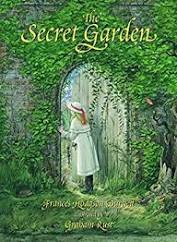
Set in and around the cavernous and foreboding Misselthwaite Manor, The Secret Garden charmed me absolutely, drew me into a world of imagination, just as Phantastes did Lewis.
Time and again whenever I am asked about my favorite book, I return to the childhood reading of The Secret Garden. And now, as I look back over my own writing, I can see the guywire stretching between the story of Mary Lennox and my own writing—much like the line between Phantastes and Narnia. How greatly I was influenced by Burnett’s writing and storytelling!
So, writers out there: What is THAT book for you? What one story sparked your imagination and set you on the delightfully exciting path of writing?
May 23, 2022
When reviewers get it wrong …
I love reviews of my books. The good reviews are affirming. They tell me I’ve done something right and that a reader has enjoyed my books. Positive feedback is the ultimate prize for a writer.
I deeply appreciate every reader who takes the time to write a review.
But I also appreciate the not-so-good reviews because these can teach me. As a writer, I am always eager to learn. (Every real writer is!) So when an astute reader can give me a critique that helps improve my writing, I am grateful for it. Writing is a lifelong occupation, a craft to be constantly honed, and a passion to be enjoyed. Every fair and thoughtful criticism helps me become a better writer.
There are, however, occasional reviews that are maddening because they have no redeeming value and no relationship to the value of my book or my writing. They are written purely for the sake of being critical — and they pull down my average.
Here’s one such review:

The one-star reviewer wrote: “My review has nothing to do with the story line, but the fact that the paperback was assembled incorrectly. It had Chapter 21 at the beginning and ran through Chapter 40 and then had Chapter 1-7 and then another mix up. The machine assembling these books messed up like anything I have ever seen.”
What’s frustrating about this one-star review is that it has nothing to do with my work. It is all about a nameless, faceless printer who made a mistake. If this reviewer had had one bit of sense or thoughtfulness, she (who will remain nameless here) would have understood that Amazon eagerly and quickly replaces products that are not right, even books—and that a one-star review was just wrong.
But, I guess, some people just like to complain.



